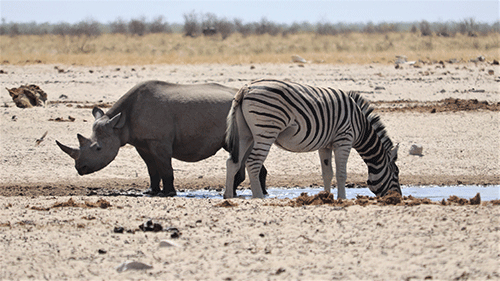Ombudsman Basilius Dyakugha has blasted government for concentrating on “theory conservation” and prioritising tourism ahead of local people’s lives while not implementing concrete measures to mitigate human-wildlife conflict in the Bwabwata National Park.
He said the line ministry should do more to protect human lives.
Dyakugha said the human population residing in and around the park has increased over the last 30 years and it is a big challenge that people and animals are competing for natural resources. Thus, the ministry of environment should stop concentrating on paper or theory conservation because they are ignoring the needs of human beings who live in those areas.
“Some human-wildlife conflicts can undoubtedly be solved or mitigated; however, the Ministry of Environment, Forestry and Tourism seems only to concentrate on theory conservation, rather than implementing concrete measures to mitigate the situation,” said Dyakugha.
He said the ministry must be creative and innovative by supporting and encouraging the community to live with wildlife. The conflict has been there for many years, and today it can be mitigated by the zoning of land, which could contribute to solving human-wildlife conflict because human beings and wildlife are sharing the same resources, land, water, and forest, said Dyakugha.
It is his argument that the issue of access and benefits from wildlife resources in the parks in Namibia seems also to be misplaced, as it appears though, from the ministry point of view, it is tourism first, which is wrong.
Dyakugha said this is wrong because tourism includes local people and their cultures, and the income from these resources should actually provide more benefits to the locals.
“MET does not take the interest of the whole community seriously, because, for so many years, the ministry has been selective and to a larger extent they have been avoiding or refusing to have a meaningful dialogue with the whole community in Bwabwata area regarding the ministry’s plan or demarcation of that game park,” explained the Ombudsman.
He proposed that the ministry must come up with plans to build large man-made lakes in the park, to divert some of the animals from the river away from the community.


